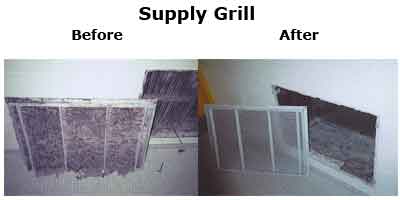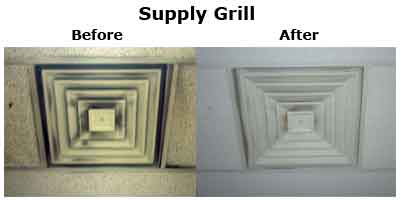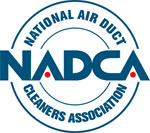 |
.: HVAC Residential Cleaning / HVAC Commerical Cleaning / Home Inspections :.
.: FAQ / About Power Vac / Contact Us :. |
|||
CANADA'S HVAC CLEANING SPECIALISTS
Why worry about my Indoor Air Quality?
In order to maintain acceptable indoor air quality (IAQ), cleaning HVAC systems provides many benefits. Cleaning lessens the likelihood of indoor air pollution in the building and may help to alleviate health and comfort complaints by occupants. With growing awareness of the dangers of indoor air pollution, public concern for the cleanliness of ventilation systems has led to a significant increase in demand for HVAC system cleaning services.

IAQ can be defined as the nature of air as it affects the health and well-being of building occupants. People spend up to 90 percent of their time indoors. The amount of time spent indoors is a great concern, given the fact that studies conducted by the EPA, show indoor pollutant levels may be 10 to 100 times higher than outdoor concentrations.
The economic benefits of solving IAQ problems can also be significant. Improving air quality can reduce worker absenteeism and increase productivity. The U.S. Government estimates that absenteeism cost more than $100 billion a year in lost productivity and medical costs, and medical researchers have found that 50 percent of absenteeism is due to upper respiratory problems – common symptoms in sick buildings.
In most cases HVAC system cleaning alone will not solve IAQ problems. Solving IAQ problems requires a team of professionals, such as mechanical contractors, filtration experts, test and balance specialists, and, of course, professional HVAC system cleaning
contractors. It can, however, greatly reduce the threat of indoor air pollution when performed in conjunction with a program of regular building maintenance and IAQ evaluation.

The benefits:
A building's heating, ventilation, and air conditioning (HVAC) system provides conditioned air to occupied spaces within the facility. Typically, air from within an occupied space, along with fresh air drawn from outdoors, is drawn in through ductwork to an HVAC unit, where it is conditioned. Before the air gets to the unit, it usually passes through a filter designed to protect the mechanical equipment from becoming contaminated by large particles of dust and debris. Many filters commonly used today will not prevent the introduction of small particles of dust and debris from the air stream
into the system. Over time, these deposits may form sizable accumulations. In the course of normal building operations, the humidity level within the HVAC system can vary greatly.
• Heating, ventilation, and air conditioning (HVAC) systems have been shown to act as a collection source for a variety of contaminants that have the potential to affect health.
• These contaminants include mold, fungi, bacteria, and very small particles of dust.
• Cleaning lessens the likelihood of indoor air pollution in the building, and may help to alleviate health and comfort complaints by occupants.
• Clean HVAC systems perform more efficiently, which may decrease energy costs.
• Well maintained mechanical components are likely to last longer, reducing the need for costly HVAC system replacement or repairs.
• The removal of such contaminants from the HVAC system should be considered as one component in an overall plan to improve indoor air quality.
Since ordinary cleaning is not able to reach the very deep inside of the air ducts, only professionals with special machines can help you thoroughly clean up the air conditioning system.
How to Select a Qualified Commercial Contractor Checklist
Will the company be assigning an Air Systems Cleaning Specialist (ASCS) to your project that will be responsible for the complete project?
How long has the contractor been in the commercial HVAC system cleaning business?
Can the contractor provide you with evidence of the current Worker’s Compensation and General Liability Insurance coverage? (Ask for Certificate of Insurance)
Can the contractor provide you with 3 to 5 customer references with phone numbers for projects of similar size and scope of work which they provided service in the last year?
Does the contractor have written safety, respiratory, and confined space program reports?
Will the contractor provide you with a means to conduct a visual inspection at any time during the cleaning? (Mirror and flashlight, camera or other remote visual systems)
Will the contracting company actually do the work? (Some companies subcontract the work to independent contractors. You will want to apply these guidelines for subcontractors as well.)
More info: NADCA Post Cleaning Checklist (.pdf)
.: About Power Vac Contact Us :.
